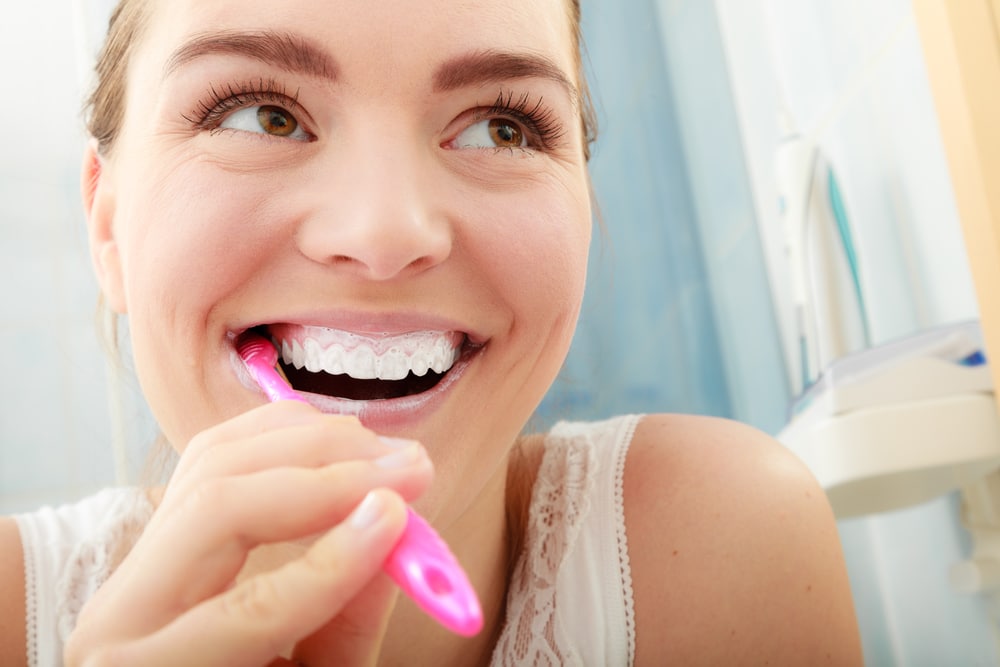
Babies with no teeth, children with baby teeth, older kids with a mix of baby and adult teeth, and adults are all encouraged to practice good oral health. Protecting the teeth you have is the primary goal, but it is also about creating solid habits that will support good oral hygiene for a lifetime, preserving teeth and gums and minimizing the risk of decay.
If you have never invested much time or thought into avoiding bad oral hygiene, it’s never too late to get started creating new, healthy habits.
How to Improve Oral Health
If you’re not sure how to begin when it comes to taking care of your mouth, add the following habits to your day:
- Brush your teeth at least twice a day. When you wake up and before you go to bed are the recommended times for brushing your teeth, but you may wish to brush your teeth after every time you eat, especially if you eat sticky, dark, acidic, or sugary foods.
- Floss every day. Flossing before brushing not only loosens food stuck between the teeth, but it can also promote good gum health as well. If your gums bleed when you floss, you need to do it more regularly.
- Use mouth rinses or washes. If you struggle with bad breath or if you’d like an added layer of good oral hygiene to help you wash out all the remaining food particles and debris, add a mouthwash to your regimen.
- Scrape the tongue daily. Scraping the tongue can help you to remove the layer of white film that builds up there. It can also help to combat bad breath.
- Eat healthy foods. If you eat a lot of sticky or sugary foods, you are more likely to develop tooth decay than if you stick to crisp vegetables and fruits for snacks. Limiting exposure to sugary drinks and acidic drinks like coffee and soda can also help you to preserve your mouth health.
- Get regular checkups. Every six months, it is recommended that you see the dentist for a cleaning and checkup to make sure that everything is going as it should be. They can identify cavities in the early stages and answer questions about taking care of your teeth and gums.
Additionally, fluoride treatments may be warranted, sealants to protect against cavities may be an option, and annual bitewing x-rays can help to identify potential issues below the surface around the roots of the teeth.
- Get dental care for any problems that arise. If you have pain, notice any sores in the mouth, or have an accidental mouth injury, the dentist can help to mitigate the damage.
Schedule Your Dental Hygiene Checkup Today
Ready to get started with better oral hygiene? Call Dison Family Dentistry to schedule an appointment and get the help you need to care for your teeth today.
